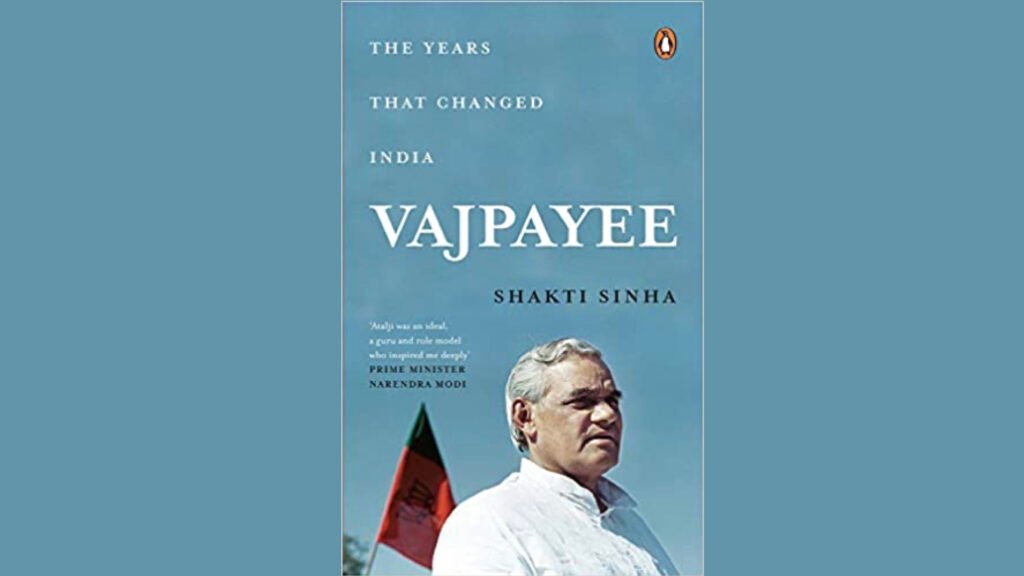
The book is a narration of the political Journey of Vajpayee’s Prime Ministership in the years of 1998-1999s by Shakti Sinha who was his Private Secretary during that period. The author’s experience with the Steller leader is well reflected in the volume. Formerly he was secretary to the Leader of Opposition (1996-1997). He was at an important juncture in all the important meetings, foreign visits, and political discourse and that highly qualifies him to write the book on Atal Bihari Vajpayee’s governance.
The turmoil years of coalition government characterized by historic events such as the Pokhran nuclear test, economic policy reforms and the victory in the Kargil war. New and transformative national projects like the Golden Quadrilateral highlighted Vajpayee’s term in office.
The Parliamentary election mandate of 1998 didn’t give the full majority to NDA. Later, more parties supported Vajpayee to form the government. The author discusses his role in forging the National Agenda for Governance (NAG) – the legislative agenda of BJP and allies in the coming years. It clearly stated that the NDA government would re-evaluate the nuclear policy and exercise the option to induct nuclear weapons. The intention to review the nuclear option was criticized by Pranab Mukherjee during the President’s address in Rajya Sabha.
The discussions during the political tremors are very well reported and both the Government and public perspectives are presented. The challenges of running the coalition government and maintaining cohesion between the ally’s political parties while serving their vested interests, whether in bargaining for portfolios or carrying favour in their respective state politics were dealt with gracefully by Vajpayee, without compromising his self-respect and dignity. But Later his government lost the trust vote in the parliament. The full political drama and behind-the scene-events are described in the book.
Some chapters vividly depict instances of Vajpayee sharing warm relations with leaders of other political parties and different ideological backgrounds, which is why he was known as Ajatashatru (the one who has no enemies) in the political arena of India. The setting up of an institutional framework for dealing with the Cauvery river dispute prevalent amongst four states – Karnataka, Tamil Nadu, Kerala, and Pondicherry and later the establishment of Cauvery River Authority (CRA), with the PM as its chair and four Chief Ministers as members was one of his remarkable achievements which was welcomed by the stakeholders of these states.
The book depicts Vajpayee’s defence of India’s quest to become a nuclear power against the globally negative portrayal of India’s nuclear test. The international and domestic pressure didn’t shake the government’s decision not to sign the Non-Proliferation Treaty (NPT) and Comprehensive Nuclear Test Ban Treaty (CTBT). The after-effect of the Pokhran test such as US favouritism towards Pakistan and economic sanctions on India at that time and Vajpayee’s grit to hold his ground against all the propaganda and pressure tactics is compiled in the book. Domestically, he took on the Opposition’s allegations through his extemporaneous speeches in parliament.
Vajpayee is to be credited for flagging off the New Delhi-Lahore bus service and visiting Pakistan to normalize Indo-Pak ties. The author rightly comments in this connection: “The line between a politician and a statesman can be quite thin, and I realized Vajpayee had the skill to make transitions when required“. His prophetic words at one of the public receptions in Pakistan ‘One can change history, not geography. One can change friends, not neighbours’ exemplify his realistic foreign policy. Unfortunately, the bus diplomacy did not last long and was followed by war.
The Kargil war episode is summarized very aptly in the book. From war room strategy to India’s victorious counter-offensive carried out with valour by our brave hearts, many of whom made the supreme sacrifice in that endeavour. The less talked about contribution of the Indian Navy in addition to the Indian Air Force and Army in the war is underlined by the author. Kargil war was India’s first televised war and the complications faced by the government [….] as the media was reporting live from the location where the actual war was taking place. The reporting ranges from realistic to imaginative, putting considerable pressure on the government to act. The daily press conferences by the government and army were meant to counter the misinformation.
The author portrays Vajpayee as an economic liberalizer citing his legislative push to allow Foreign Direct Investment (FDI) in insurance despite opposition from the Bhartiya Mazdoor Sangh (BMS). The book is a great read for understanding the legacy of the Late Prime Minister. His path breaking policies and practice of good governance indeed raised the bar in political performance.






Nice👏👏👏👏
Keep it up👏👏👏👏
Fabulous 👏👏👏👏